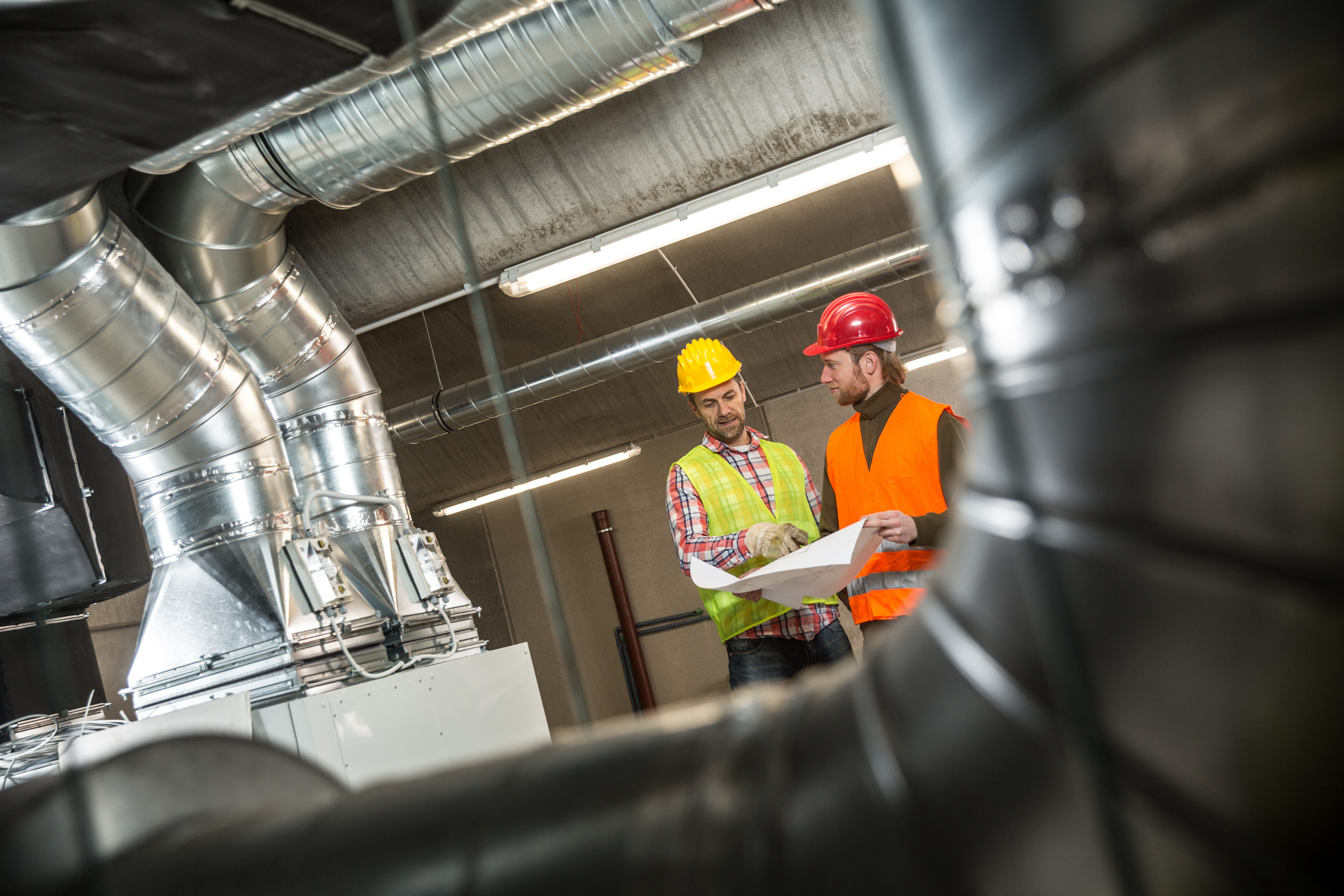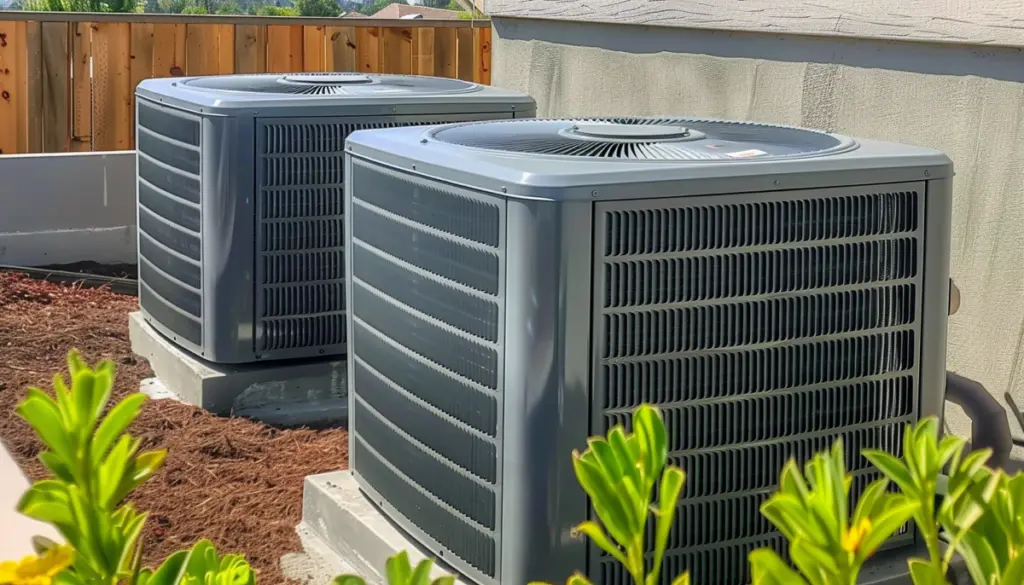Learn how HVAC experts support dependable indoor climate control
Wiki Article
Discovering the Crucial Elements of an Effective Cooling And Heating System
A reliable a/c system is built on numerous critical parts that operate in harmony. Each part, from the thermostat to the ductwork, plays an essential function in keeping comfort and energy performance. Recognizing these elements is critical for maximizing efficiency and enhancing interior air top quality. As one analyzes these components, the complex partnerships between them disclose insights into enhancing general system performance. What specific variables contribute most to this effectiveness?The Function of the Thermostat in HVAC Efficiency

Commonly ignored, the thermostat plays an important function in the performance of HVAC systems. This little device serves as the main control center, controling temperature setups and making certain excellent comfort within a space. By accurately picking up the ambient temperature level, the thermostat interacts with the heating, air, and ventilation conditioning systems to maintain the preferred climate
An efficient thermostat decreases energy usage by activating the a/c system just when necessary, thereby protecting against too much home heating or cooling. Modern programmable and clever thermostats improve this effectiveness even more by permitting customers to set timetables and from another location readjust setups, adapting to everyday routines.
The positioning of the thermostat is vital; inappropriate place can lead to incorrect temperature readings, resulting in ineffective procedure. Generally, a well-functioning thermostat not only enhances comfort however also adds noticeably to power savings and the longevity of the a/c system.
Understanding the Significance of Air Filters
Air filters offer a crucial function in cooling and heating systems by assuring that the air distributing within a space remains healthy and clean. These filters catch dust, irritants, and other toxins, avoiding them from being recirculated throughout the setting. By capturing these particles, air filters add to boosted indoor air quality, which can greatly profit occupants' health, particularly those with allergies or breathing conditions.Furthermore, maintaining clean air filters enhances the efficiency of a/c systems. Stopped up filters can limit airflow, causing the system to function tougher to maintain desired temperatures, causing increased power usage and higher utility costs. On a regular basis changing or cleaning filters is a vital upkeep step that can extend the life-span of cooling and heating tools. Inevitably, recognizing the value of air filters allows property owners and building supervisors to take proactive steps to guarantee a well-functioning, effective cooling and heating system that advertises a safe and comfy indoor setting.

The Performance of the Heater and Heatpump
Heating systems and heatpump are crucial elements of HVAC systems, in charge of supplying warmth during colder months. Furnaces operate by heating air with combustion or electrical resistance, after that distributing it throughout the home via ducts. They generally offer rapid heating and can be fueled by natural gas, electrical energy, or oil, depending on the system type.On the other hand, heatpump move warmth rather than create it. They draw out heat from the outdoors air or ground, also in low temperatures, and transfer it inside your home. HVAC experts. This twin functionality enables heatpump to likewise give cooling in warmer months, making them functional options for year-round climate control
Both systems need proper maintenance to assure efficiency and long life. While heaters master extreme cool, warmth pumps can be beneficial in modest climates. Understanding their unique functionalities aids house owners in choosing the most ideal choice for their home heating needs.
Discovering the Cooling Unit
The cooling system is a vital component of heating and cooling systems, available in numerous types to fit various requirements. Recognizing the efficiency rankings of these systems is essential for making educated selections about energy consumption and price. This section will certainly check out the diverse sorts of ac system and make clear just how performance scores influence performance.Kinds Of Air Conditioners
While various variables influence the option of cooling systems, recognizing the different kinds readily available is important for property owners and building managers alike. Central air conditioning conditioners are created to cool down entire homes or buildings, making use of a network of air ducts for air flow. Window devices provide an even more localized solution, perfect for tiny areas or solitary spaces. Portable air conditioning unit provide flexibility, permitting individuals to move the device as needed. Ductless mini-split systems are one more alternative, integrating the efficiency of main systems with the convenience of zoning, as they require no ductwork. Geothermal systems harness the planet's temperature level for energy-efficient air conditioning. Each kind comes with distinctive advantages, making informed selections vital for effective climate control.
Efficiency Rankings Described
Understanding efficiency scores is vital for choosing the appropriate cooling unit, as these metrics supply understanding into the system's efficiency and energy intake. The most usual score for a/c unit is the Seasonal Power Efficiency Ratio (SEER), which gauges the cooling output throughout a typical cooling season separated by the overall electrical energy input. A greater SEER indicates far better effectiveness. Additionally, the Power Effectiveness Proportion (EER) is used for gauging effectiveness under specific conditions. Another crucial metric is the Power Star certification, which symbolizes that an unit meets stringent power effectiveness standards. By reviewing these ratings, consumers can make educated options that not just enhance convenience however additionally decrease power prices and environmental influence.The Significance of Ductwork and Airflow
Efficient ductwork style and air movement management play vital functions in the overall efficiency and efficiency of a/c systems. Appropriate ductwork assurances that conditioned air is dispersed evenly throughout a space, reducing temperature variations and check here boosting convenience. Properly designed air ducts minimize resistance to airflow, reducing the workload on heating and cooling tools and inevitably lowering energy usage.Air flow monitoring includes tactically positioning vents and signs up to boost the circulation of air. This prevents usual issues such as warm or cold places, which can happen when airflow is blocked or improperly balanced. In addition, the ideal air duct materials and insulation can additionally boost efficiency by minimizing warm loss or gain throughout air transportation.
An efficient ductwork system not just adds to energy cost savings but can likewise lengthen the lifespan of HVAC equipment by lowering unnecessary stress (HVAC experts). Understanding the significance of ductwork and air movement is crucial for achieving peak A/c system performance.
Routine Upkeep Practices to Improve Efficiency
Routine maintenance techniques are vital for guaranteeing peak efficiency of HVAC systems. These methods consist of regular assessments, cleansing, and needed repair work to keep the system running effectively. Regularly changing air filters is important, as clogged filters can obstruct air flow and decrease effectiveness. In addition, technicians should examine and clean evaporator and condenser coils to avoid getting too hot and energy wastefulness.Annual professional examinations are also suggested, as trained professionals can recognize possible problems before they escalate. Lubricating relocating parts reduces damage, adding to a longer life expectancy for the system. Moreover, guaranteeing that the thermostat operates correctly aids in keeping perfect temperature level control.

Frequently Asked Concerns
Just how Typically Should I Change My Thermostat?
Thermostats need to normally be replaced every 5 to 10 years, relying on use and modern technology advancements. Regular checks are recommended to assure peak efficiency, especially if experiencing irregular temperature level control or enhanced energy costs.What Size Air Filter Is Finest for My A/c System?
The very best size air filter for a HVAC system varies by system style. Generally, it's important to consult the owner's guidebook or check the existing filter measurements to guarantee peak efficiency and air quality.Can I Install a Heatpump Myself?
Setting up a warm pump separately is possible for experienced people, yet it requires understanding of electric systems and neighborhood codes. Employing an expert is advised to guarantee proper setup and optimal system performance.How Do I Know if My Ductwork Is Effective?
To establish ductwork performance, one should check for leaks, action airflow at vents, check insulation top quality, and review temperature level distinctions in between supply and return air ducts. Professional analyses can provide complete insights into overall performance.What Are Indications My A/c Demands Immediate Maintenance?
Indicators that an a/c system requires instant upkeep include uncommon noises, inconsistent temperatures, raised power expenses, unpleasant smells, and regular biking. Attending to these problems promptly can protect against further damage and assurance top system performance.Air filters serve a necessary feature in Cooling and heating systems by ensuring that the air distributing within a space remains tidy and healthy and balanced. Additionally, preserving tidy air filters enhances the efficiency of HVAC systems. Ductless mini-split systems are another option, combining the effectiveness of central systems with the ease of zoning, as they call for no ductwork. Understanding efficiency scores is necessary for picking the best air conditioning device, as these metrics supply insight right into the system's performance and energy intake. The best size air filter for a Heating and cooling system varies by unit layout.
Report this wiki page